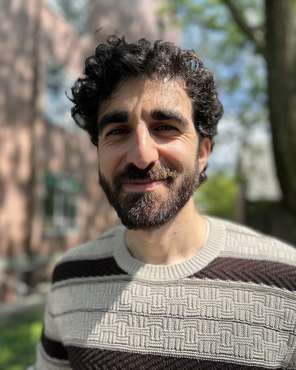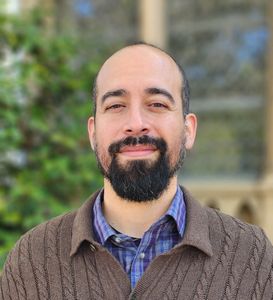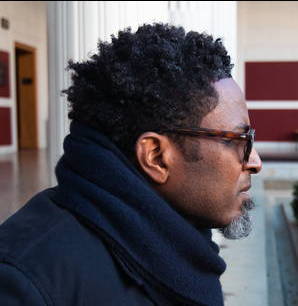Daniel P. Gámez
Dr. Daniel P. Gámez is a Presidential Postdoctoral Fellow with the Departments of History and American Indian Studies. He is also affiliated with the project “Race in the Global Past through Native Lenses,” supported by the Andrew W. Mellon Foundation. He received his PhD in Geography from The University of British Columbia (Unceded Xʷməθkwəy̓əm (Musqueam) Territory). Daniel is a proud first generation scholar who writes and works as a community-based researcher and activist in the study of Latin American colonialism, racialization, Indigenous sovereignty, and imperial urbanism.
Daniel collaborates with grassroots organizations in Abya Yala (Latin America), particularly in Mexico. Drawing on the work of Indigenous, Black, and Latinx anticolonial thinkers, his work examines the ways urban Indigenous communities organize to transform infrastructures and political institutions in ways that assert sovereignty and self-determination.
Aram Ghoogasian
Aram Ghoogasian is a Postdoctoral Scholar in the Department of History at UCLA. He is a cultural historian of nineteenth-century West Asia specializing in the Ottoman Empire, the Caucasus, and Armenian studies. His book in progress is a history of Armenian print culture in the middle decades of the nineteenth century and deals with the history of the book, periodicals, language, literacy, and literature. It argues that printers, publishers, editors, authors, translators, scholars, teachers, and other members of the learned classes spurred the emergence of a culture of print from within an already existing tradition of printing by using and interpreting print technology in novel ways.
Aram’s work has appeared in Kritika, Middle Eastern Literatures, the Journal of the Ottoman and Turkish Studies Association, Études arméniennes contemporaines, and the Los Angeles Review of Books. He received his PhD from Princeton University and holds an MA in Middle Eastern Studies from the University of Chicago and undergraduate degrees in History and English from UCLA.
Isidro González Granados
Isidro González Granados is a Chancellor’s Postdoctoral Fellow in History at UCLA. He received his PhD from the University of California Santa Bárbara and completed a postdoctoral fellowship at Claremont McKenna College. The question of how disabled people were/are made guides his research. Specifically, he explores histories and legacies of eugenic practices, methods, and data in the 20th-century U.S. Southwest. González Granados is working on two book projects. Eugenic Spectrums: Gendered Science, Racial Defects, and the Making of Disability in the U.S. Southwest from Progressive Reform to the Second World War argues that part of the success of eugenics rested on the ability of white female sociomedical workers who created a space in which they could strategically assert their positionality as female scientists—as demanded by the heteropatriarchal state—through the execution of their jobs as ungendered objective data collectors. His other project, Disordered: Race, Disability, and Sociobiological Interventions in Cold War California, delves into the history of behavioral interventions and how Latinx and other racialized people experienced them in the post-World War II era in southern California.
In support of his research, González Granados received the Andrew Vincent White and Florence Wales White Scholarship in the Medical Humanities from the University of California Humanities Research Institute (UCHRI) for a project that showed how intimate dialogue between observer and observed demonstrated ways in which bedside manner, cultural insensitivity, and an ideology that some minds are worth more than others led to long lives of confinement, surveillance, and sexual sterilization for patients/inmates or, for eugenic professionals, to successful, generative, and long careers in the sciences. González Granados’s work has appeared in Southern California Quarterly, Sage Research Methods: Diversifying and Decolonizing Research, and Pacific Historical Review.
Dexter Story
Chancellor’s Postdoctoral Fellow Dexter Story is a musician, composer, music director, and Ph.D. in Ethnomusicology at UCLA. His dissertation, “Guayla Nation: Unyielding Tigrinya Music, Dance, and Identity in Eritrea,” explores how Eritreans use guayla to build community and navigate their struggles for freedom. Dexter also holds an M.A. in African Studies from UCLA and a B.A. in French Literature from UC Berkeley. His research, publications, and creative projects span African diasporic music, jazz, and ethnographic methodologies.





